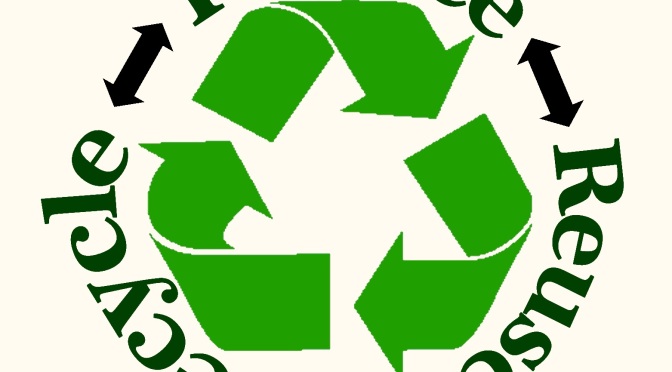The missing R’s: The ideology of recycling and waste management in consumerist culture
– Taryn Bernard
Like many cultural practices, recycling has deep historical and ideological roots. As a modern practice, recycling originated in America in the 1970s when there was growing awareness of environmental issues and a strong uprising of environmentalist activists who later coined the 3 R’s: “reduce, reuse, and recycle”. In contemporary globalised and consumerist society, recycling is framed as a way to protect the environment, a “moral” activity, but also a trendy one – a middle-class and elitist activity, ranked high on the “hip hierarchy” along with purchasing organic products from weekend farmers’ markets. Deconstructing the act of recycling might look like this: search out the arrowed triangle, and once the stamped product has been consumed, sort through your waste and throw it in the appropriate bag for collection. But the activities of “searching” and “sorting” don’t seem to curb production, nor do they prompt us to reduce consumption, two variables fundamental to the neoliberal capitalist system, to the continued dominance of big businesses and to environmental degradation. The “recyclable” stamp is not only a contemporary sign, but a modern myth so steeped in cultural ideologies and practices that it’s hard for us to recognise it as such.
According to Barthes, the sign derives its value from its surrounding context. On a macro-level, we understand the sign in a consumerist context. On a micro-level, individual instances of the sign contextualise and frame our interpretation of it. When situated on a consumable product, the recycling sign tells us “this company cares”. When visible in their corporate social responsibility report, the company says “we are doing good things” and “the corporate citizen is a moral citizen.” Cloaked in the green robe of sustainable development, neoliberal corporations appropriate environmental discourse of the 70s and declare their love for the environment, while simultaneously whispering “most profit for the least cost”. Companies clean up the environment, engage in “waste management projects”, because dirt and waste bottleneck their economic growth, not because they want greener pastures, and this leads to the production of more waste. The politics and rhetoric of recycling merely mask the problems of overproduction, overconsumption and resource-depletion, all of which can be addressed by the first two R’s – reduce and reuse – and by halting the production and consumption process, rather than simply disguising negative externalities with modern recycling processes.




